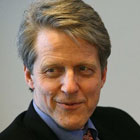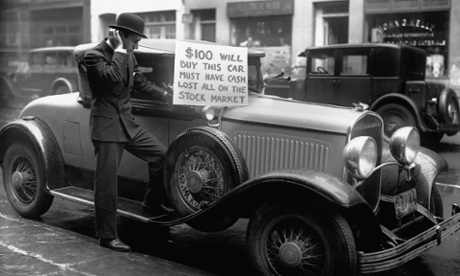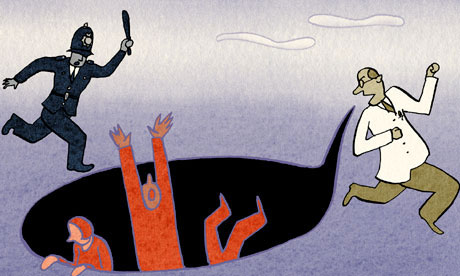Prashanth Perumal in The Hindu
India lost its tag as the ‘world’s fastest-growing economy’ last month as its fourth quarter GDP growth fell to 6.1%, the slowest in two years. Very few economists expected the slowdown. In fact, most waited for the economy to rebound as it quickly healed from the impact of the demonetisation of high-value rupee notes in November. Critics of demonetisation felt vindicated, particularly after GDP figures for the third quarter suggested that the shocking, overnight move to demonetise had very little negative impact.
Yet, for all the sermon delivered by the country’s punditry, the fact remains that macroeconomic forecasting is a lousy business — regardless of who makes the predictions. For one, data cannot prove or disprove any hypothesis as they do not establish causation. The mere fact that growth slowed in the first full quarter after demonetisation does not prove decisively that the slowdown was caused by demonetisation. As some have speculated, the current slump in the growth rate may be a continuation of the trend of slowing growth witnessed even before demonetisation.
Nor does the unexpectedly strong GDP growth in the third quarter prove that demonetisation has had no negative impact on the economy. The economy is a complex organism with several variables working in tandem, which makes prediction an almost impossible task. This is in contrast to the physical sciences where controlled experiments allow scientists to tease out the influence of any variable.
Two, there are no constant relationships between variables when it comes to the economy that allow for making exact predictions. So, even if economists were to dig into historical data and find the exact impact that demonetisation has had on GDP growth, there is no guarantee that it would hold in the future. For instance, people’s expectations may change which makes them adapt to a cashless economy better, thus blunting the impact of demonetisation on GDP growth.
Three, macroeconomic forecasting is focussed to a very large extent on measuring things that are fundamentally immeasurable. When it comes to measuring GDP, for instance, the price that is assigned to a good as its value is arbitrarily decided by statisticians. This happens despite the fact that the value of any good lies in the eyes of the consumer. Finally, both innocent and political biases influence the process of official data collection to calculate GDP, a fact that raises questions about its reliability.
None of this is to say that economists can make no useful predictions. But such predictions are more likely to be qualitative rather than quantitative. Any wise economist could foresee that demonetisation would have a substantial impact on the economy; simply from the premise that money greases the wheels of commerce, so outlawing it would affect demand and create chaos across production lines. But trying to quantify its impact in terms of the exact percentage points of growth that would be shaved off GDP is a futile exercise.
Europe's prognosis is even worse, with France trapped in depression with near zero growth as far as 2025 and Britain struggling to raise its speed limit to 1pc over the next three Parliaments.
The US Conference Board’s global economic outlook calls into question the "BRICs" miracle (Brazil, Russia, India, China), arguing that the low-hanging fruit from cheap labour and imported technology has already been picked.
China’s double-digit expansion rates will soon be a romantic memory. Growth will fall to 6.9pc next year, then to 5.5pc from 2014-2018, and 3.7pc from 2019-2025 as the aging crisis hits and investment returns go into "rapid decline".
Growth in India - where the reform agenda has been "largely derailed" - will fall to 4.7pc to 2018, and then to 3.9pc. Brazil will slip to 3pc and then 2.7pc. Such growth rates will leave these countries stuck in the "middle income trap", dashing hopes for a quick jump into the affluent league.
"As China, India, Brazil, and others mature from rapid, investment-intensive ‘catch-up’ growth, the structural ‘speed limits’ of their economies are likely to decline," said the Board.
The fizzling emerging market story is a key reason why the West has relapsed this year. The world is now facing a synchronized downturn all fronts, with little scope for fiscal and monetary stimulus.

France slumps to bottom of the class, with Britain close behind
"Mature economies are still healing the scars of the 2008-2009 crisis. But unlike in 2010 and 2011, emerging markets did not pick up the slack in 2012, and won’t do so in 2013," it said.
The Conference Board says Europe’s demographic crunch and poor productivity has reduced trend growth to near 1pc, though it could be worse if the region makes a hash of monetary policy and follows Japan into a "structural deflation trap". Large numbers of people may be shut out of the jobs market forever.
Germany will outperform Italy and France massively over the next five years, implying a bitter conflict within EMU over control of the policy levers. While the report does not analyze debt-dynamics, it is hard to see how the Club Med bloc could keep its head above water in such a grim scenario or stop political revolt coming to the boil.
Bert Colijn, the Board’s Europe economist, said France’s woes stem from low investment, as well as delayed austerity and reform. The reckoning will now come.
He thinks Spain will fare better since it has already taken its bitter medicine. It is expected to grow at 1.8pc for the next decade as "Schumpeterian" creative destruction clears away dead wood and unleashes fresh energy - a contentious point since labour economists argue that unemployment of 25.6pc is doing permanent damage to parts of the workforce, and therefore to economic potential.
America has a younger age profile and should eke out 2.5pc to 3pc growth until 2018, and 2pc thereafter. It has a big "output gap" of 6pc of GDP to close before it hits any speed limit, so part of this is just the effect of elastic snapping back.

Emerging markets deflate
The Board said lack of demand lies behind the current global malaise, but the fading technology cycle may prove a greater threat over the long-term.
The thesis is based on work by professor Robert Gordon from Northwestern University, who argues that the great innovation burst of the last 250 years is a "unique episode in human history" and may be fading. His claims challenge the work of Nobel laureate Robert Solow - orthodoxy since the 1950s - that economic growth is a perpetual process once the right legal and market framework is in place.
The Conference Board’s forecast is starkly at odds with a report by the OECD last week predicting that China would keep growing at 6.6pc until 2030, and India at 6.7pc -- propelling the two rising powers to global dominance.
Apostles of the BRICS revolution are certain to dispute the claims. Yet there could be no clearer sign that the emerging market euphoria of the last decade has fully deflated.






 377 Comments
377 Comments

